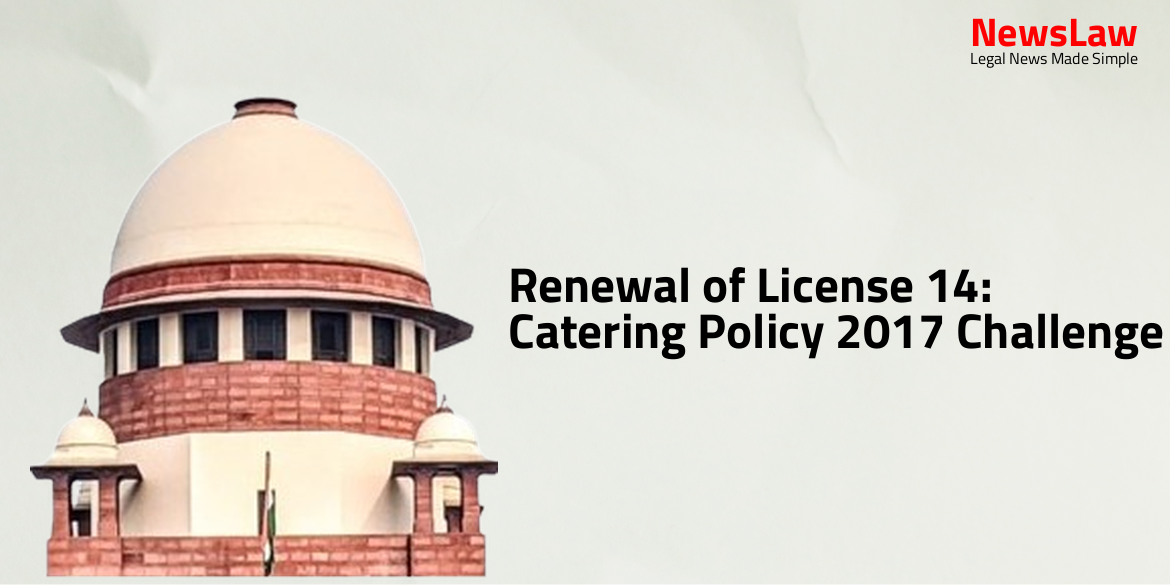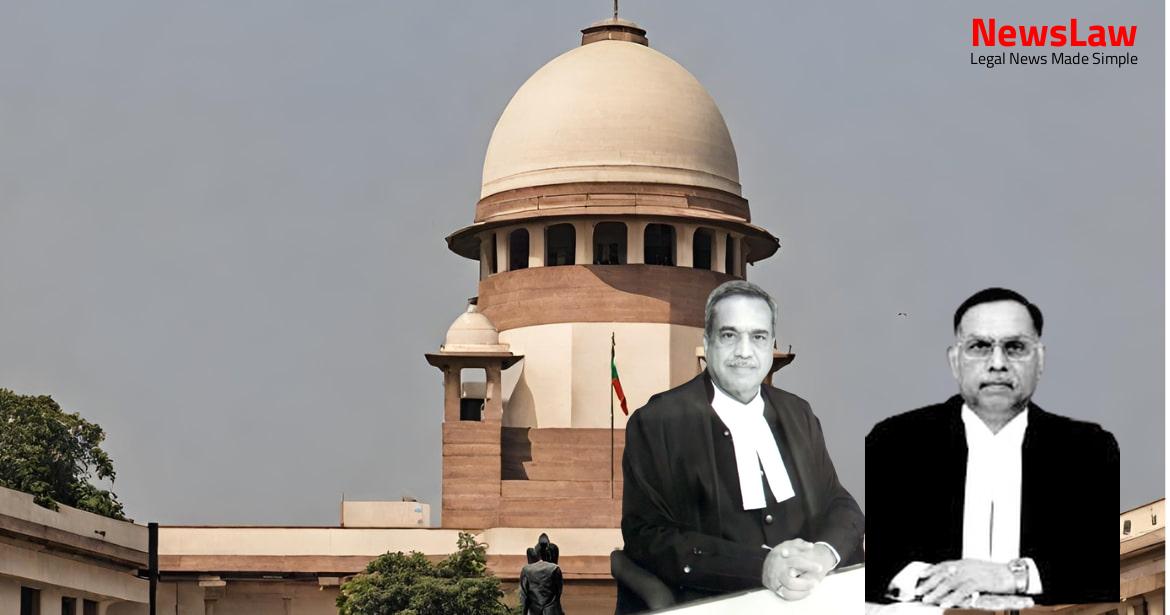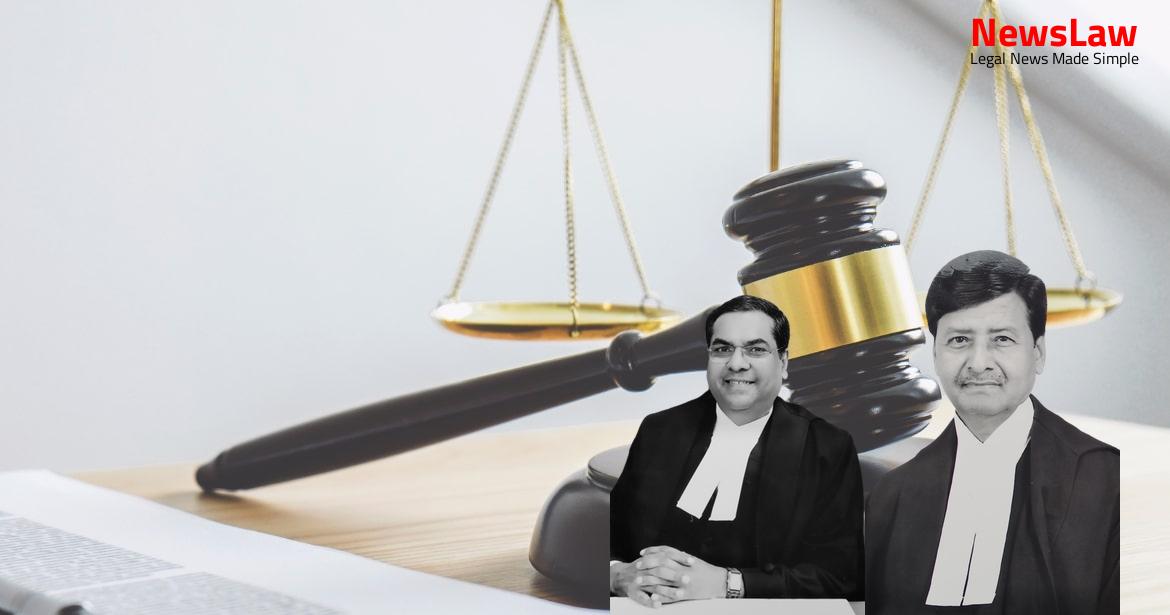In a recent judgment by the Delhi High Court, a challenge to the renewal of License 14 under the Catering Policy 2017 was addressed. The court dismissed the petitions and granted a transition period for petitioners to make alternative vending arrangements. Stay informed with this legal case involving the Catering Policy 2017. #LegalCase #DelhiHighCourt #RenewalOfLicense #CateringPolicy
Arguments
- The petitioners argue that the clause 11 of the Catering Policy 2017 violates Articles 14, 19(1)(g), and 21 of the Constitution by denying the right of license renewal and forcing existing licensees to compete unfairly against larger entities.
- They rely on legal precedents such as Olga Tellis v. Bombay Municipal Corpn., Consumer Education & Research Centre v. Union of India, South Central Railways case, and Vendors Cooperative Society v. Union Of India to support their arguments.
- The petitioners claim that they signed the license agreement under circumstances of coercion, economic duress, and due to an uneven bargaining position between themselves as vendors and the railway authorities.
Analysis
- The licenses of the petitioners have been extended due to a force majeure event, the government-imposed lockdown because of Covid-19.
- The petitioners participated in the tender fully aware that the license tenure was for 5 years with no provision for extension or renewal.
- Relying on the South Central Railways case for a larger extension of tenure is deemed misplaced.
- A license, by definition, is revocable at the grantor’s will, as per the Easements Act.
- Public bodies like the Railway Board cannot arbitrarily refuse to renew a license without rational grounds.
- Allegations of undue influence or coercion must specify the nature of influence exerted.
- The reliance on the South Central Railways case for perpetual renewal of licenses is unfounded.
- A writ of Mandamus cannot be used to compel the enactment of laws or framing of rules.
- It is within the executive’s realm to make policy decisions based on prevailing circumstances for better administration.
- The decision on renewal of licenses is at the discretion of respective zonal/divisional railways based on their assessment of ground realities and exigencies.
- The question of territorial jurisdiction to entertain a writ petition must be determined based on the averments in the petition.
- The truth of the averments is immaterial in deciding the jurisdiction.
- The challenge to paragraph 1744 of the Indian Railways Commercial Manual exists in the petitions, which is issued by the Railway Board in New Delhi.
- The doctrine of estoppel by election is a rule of equity with breach or threat to breach a fundamental right being necessary for a writ of Mandamus.
- Judicial review of a policy decision and mandamus to frame policy are distinct.
- The doctrine of election is based on estoppel, preventing a person from asserting a right through actions or conduct.
- A person knowingly accepting terms in a contract cannot later deny the validity of the contract.
- Contracts, even those with the State, are commercial transactions governed by their terms.
- The courts interpret laws with a creative process, especially in executory contracts with uncertainty.
- Policy decisions are challenged only if they infringe fundamental or statutory rights.
- Contracts between the State and an individual/entity are governed by their terms.
- The State does not guarantee profits in contracts, and there is no warranty against losses.
- Parties cannot blow hot and cold or approbate and reprobate in contracts.
- Tenders are invitations to offer, and entering into them is voluntary on both sides.
- Writs may be issued for enforcement of equitable rights in exceptional cases.
- The individual license agreement and Catering Policy 2017 contain an arbitration clause for grievances related to Covid-19 situation or claiming damages.
- Petitioners can invoke the arbitration clause for resolution if aggrieved.
- The rights and remedies of the petitioners are explicitly kept open.
- The present petitions are dismissed due to lack of merit.
- A transition period of 3 months is granted to petitioners for making alternative vending arrangements.
- The transition period starts from the extended license period or the date of the judgment, whichever is later.
- Petitioners must vacate the catering units within this 3-month period and pay the usual license fee.
- All pending applications are also disposed of.
Decision
- The present petitions are deemed maintainable.
- Renewal of License 14 is granted.
Case Title: SRI. A . JAGDEESH Vs. UNION OF INDIA & ORS. (2024:DHC:4476)
Case Number: W.P.(C)-7412/2024



